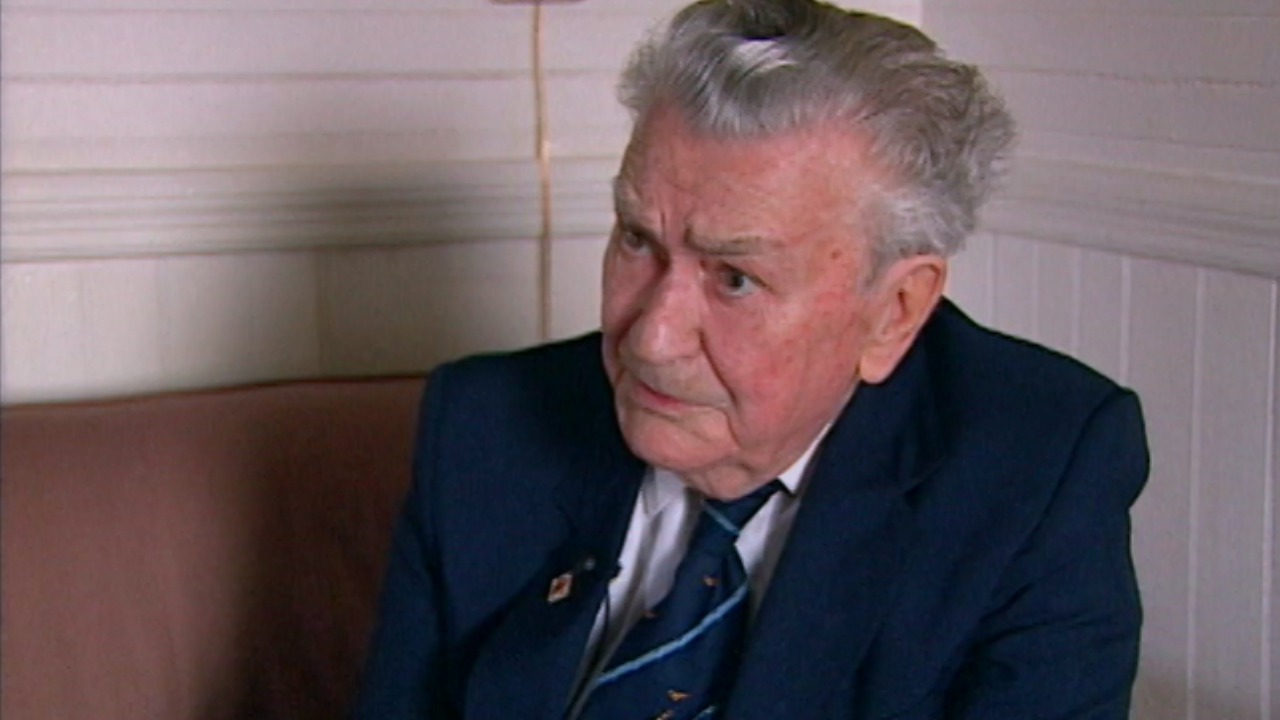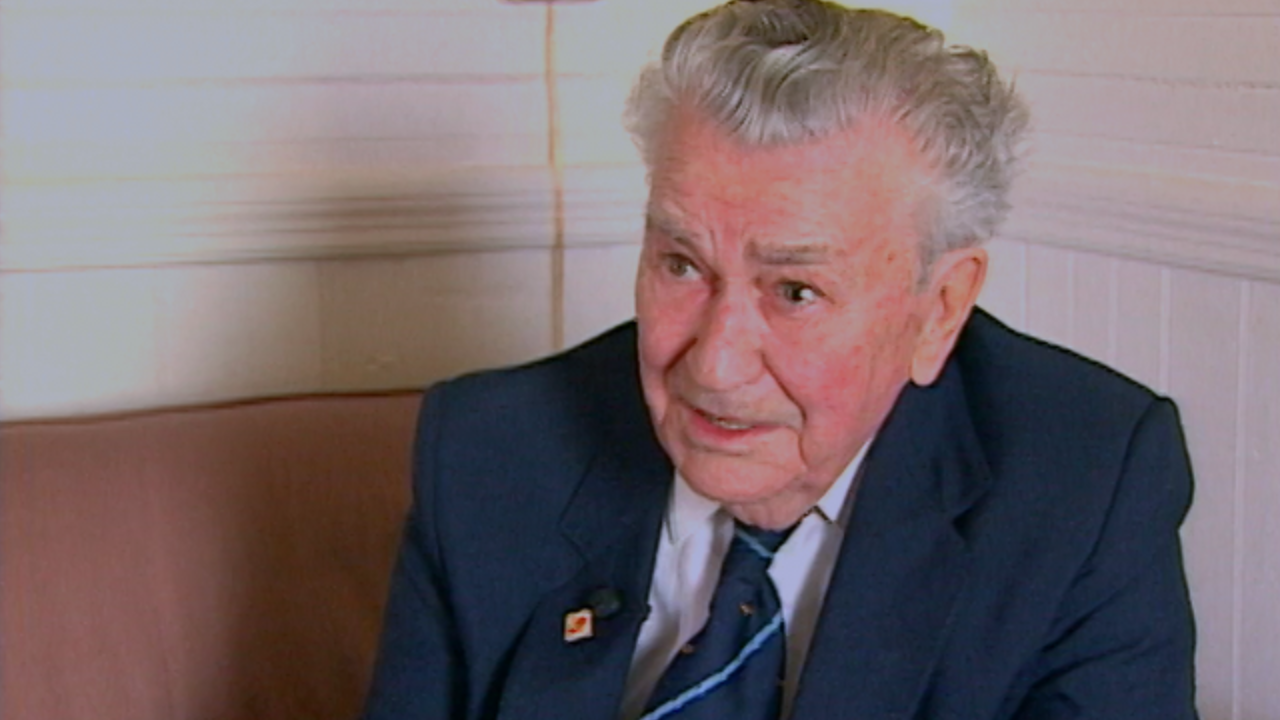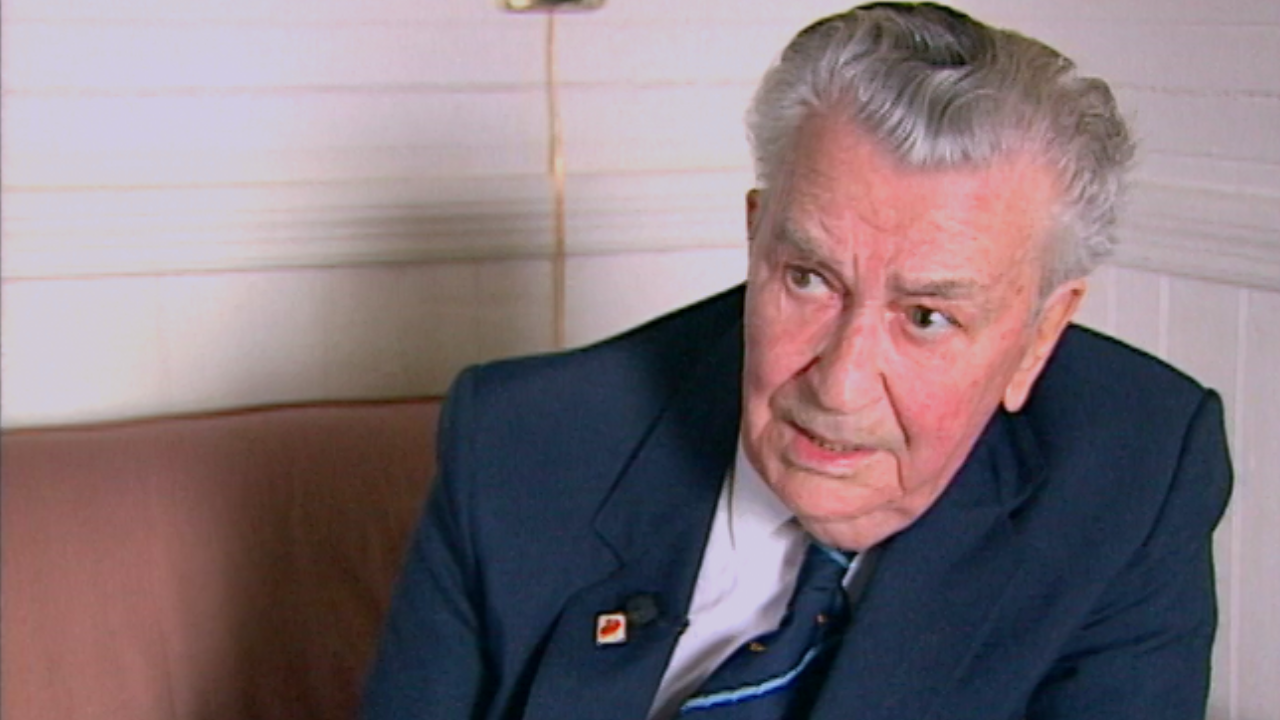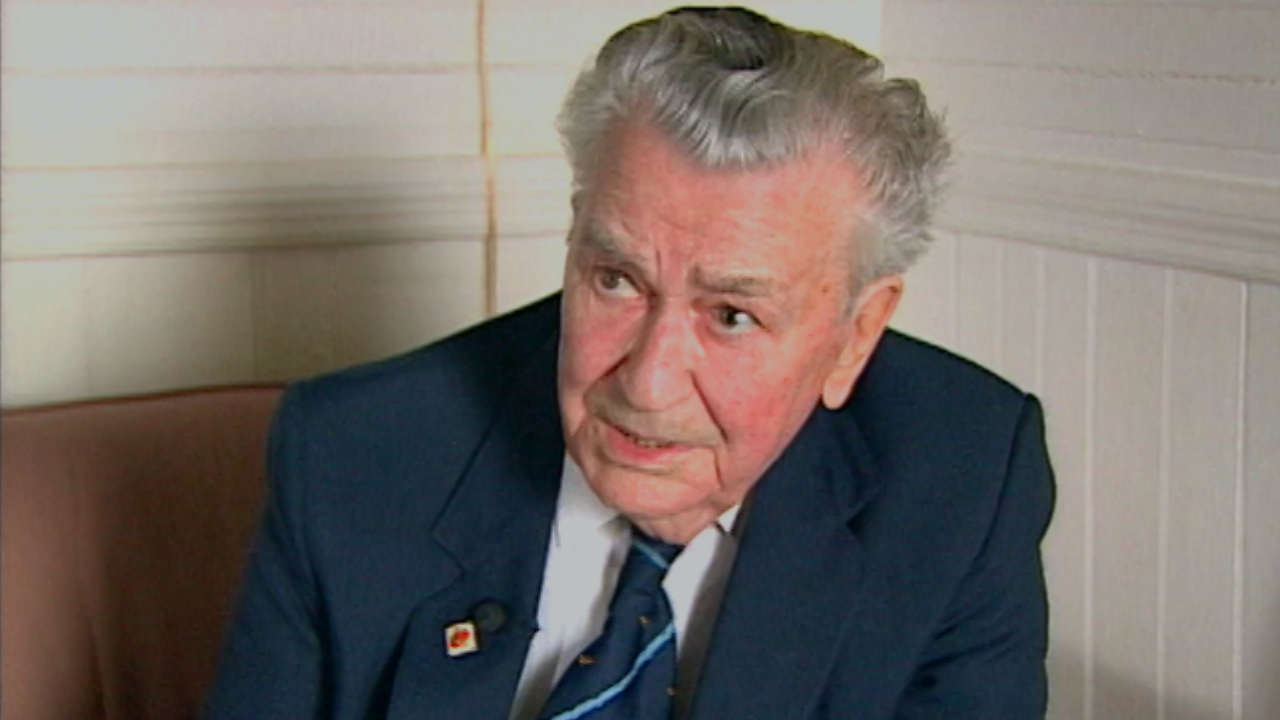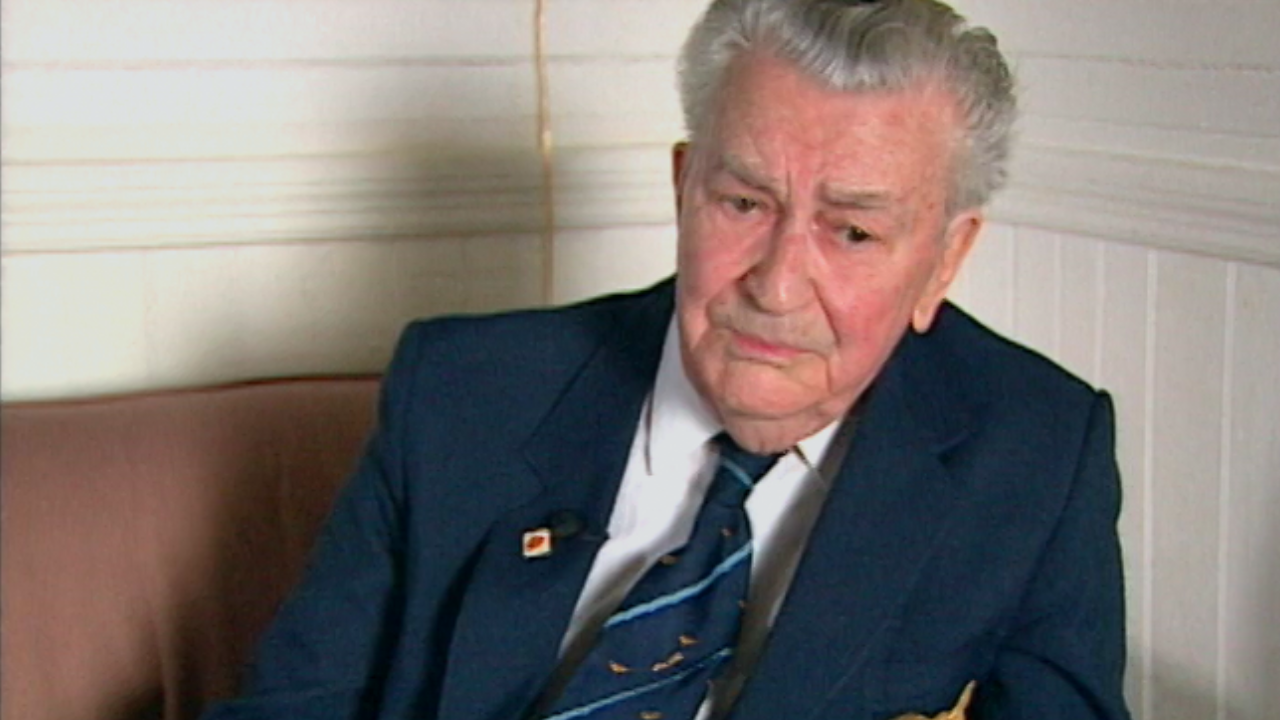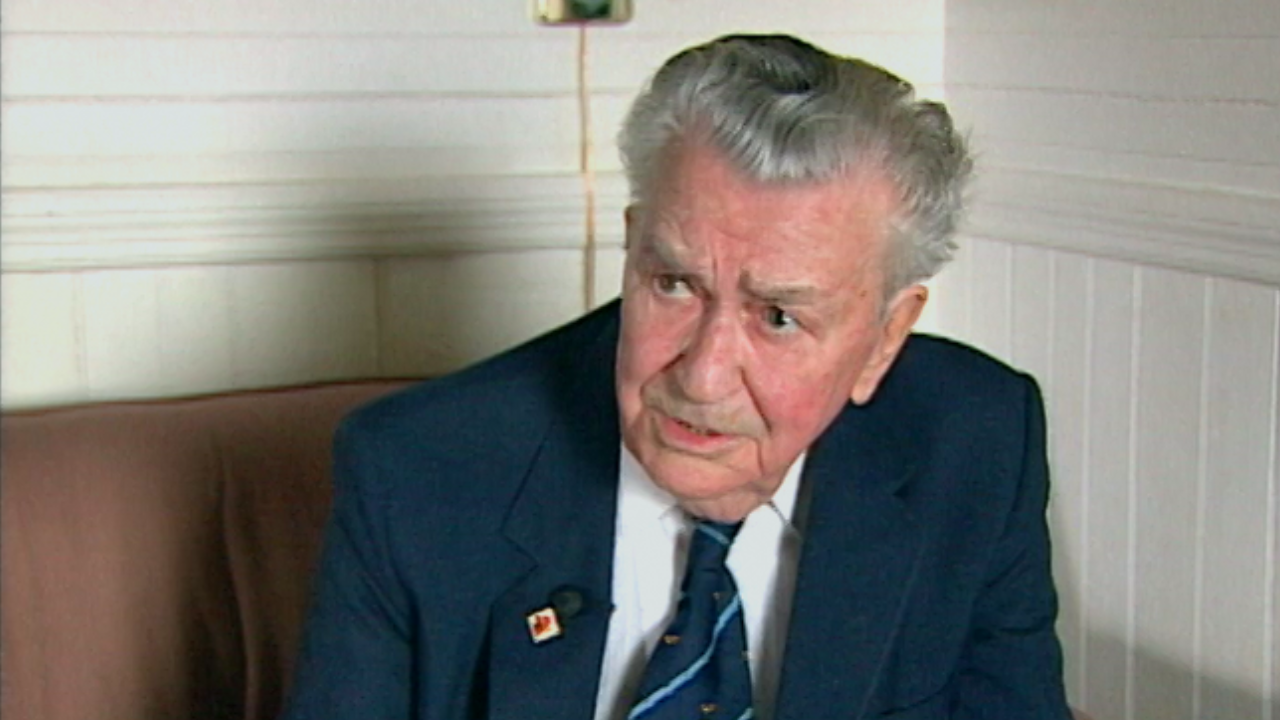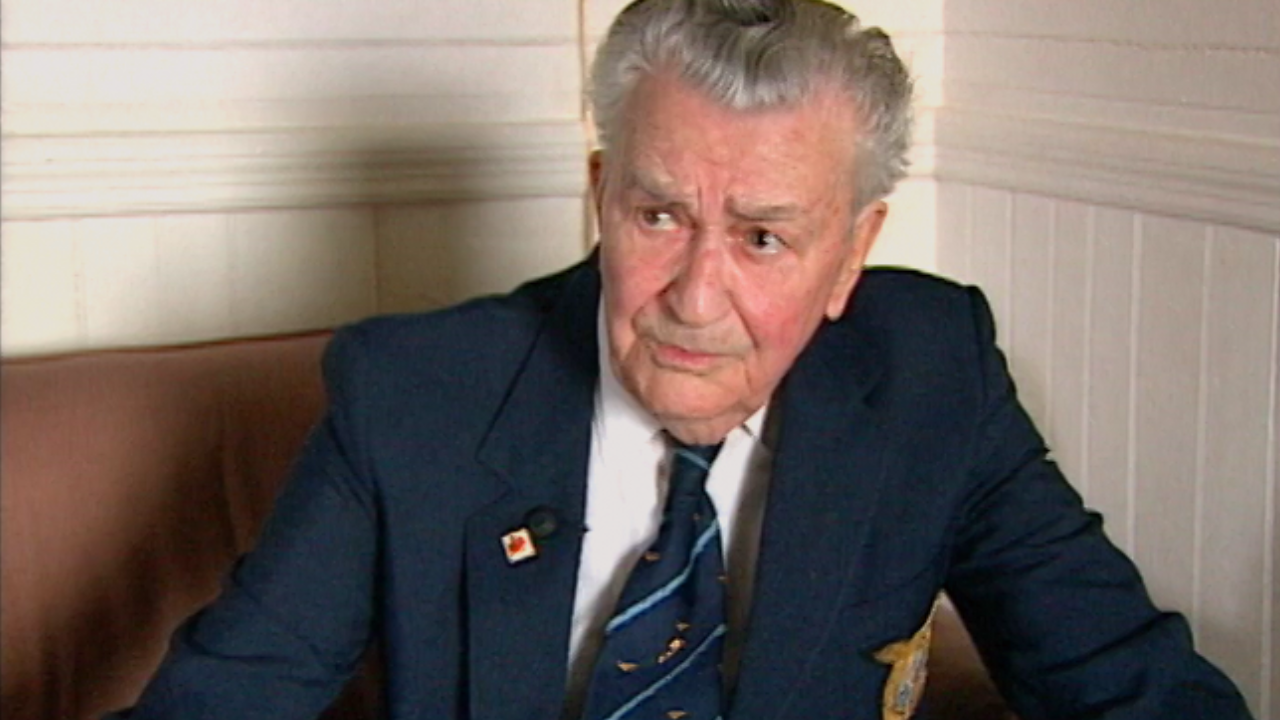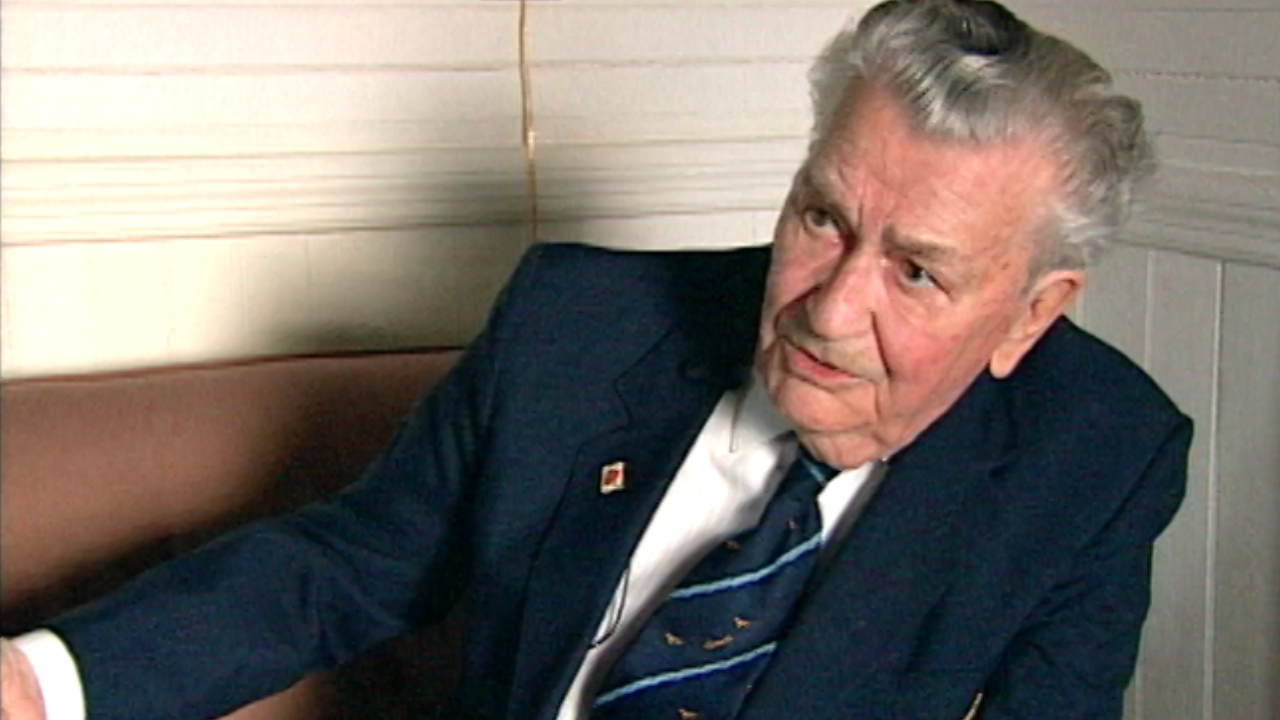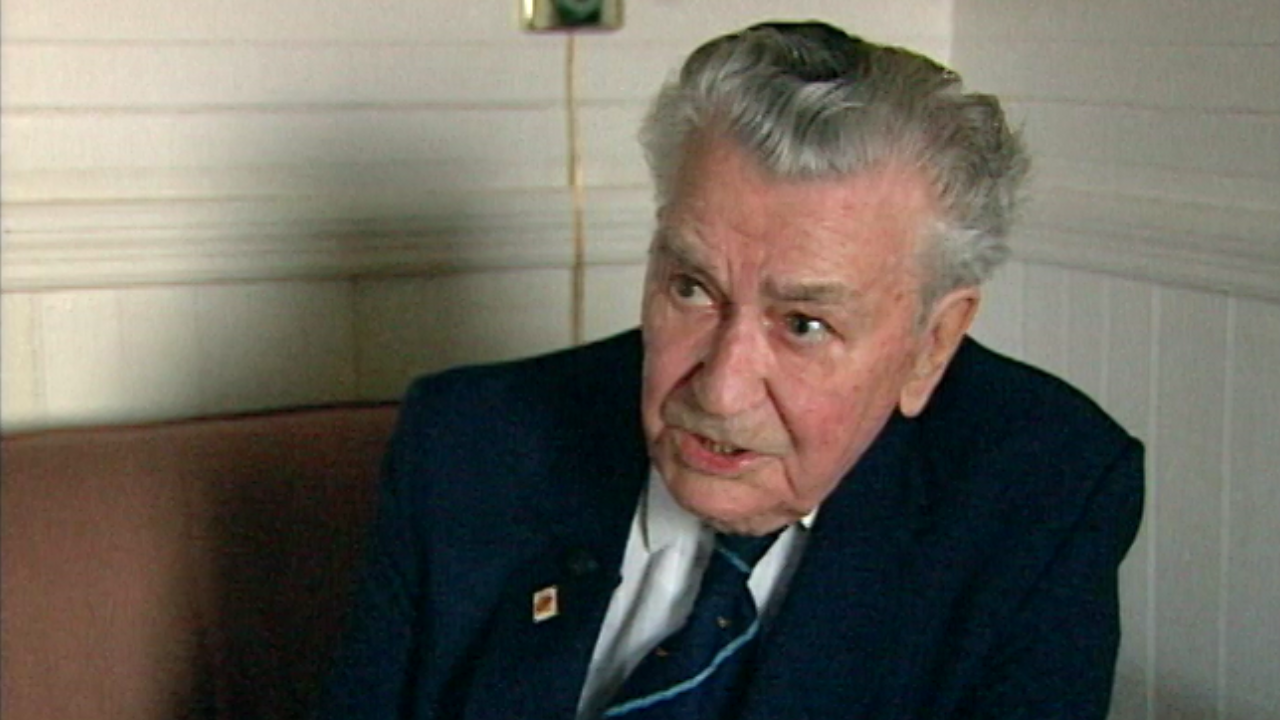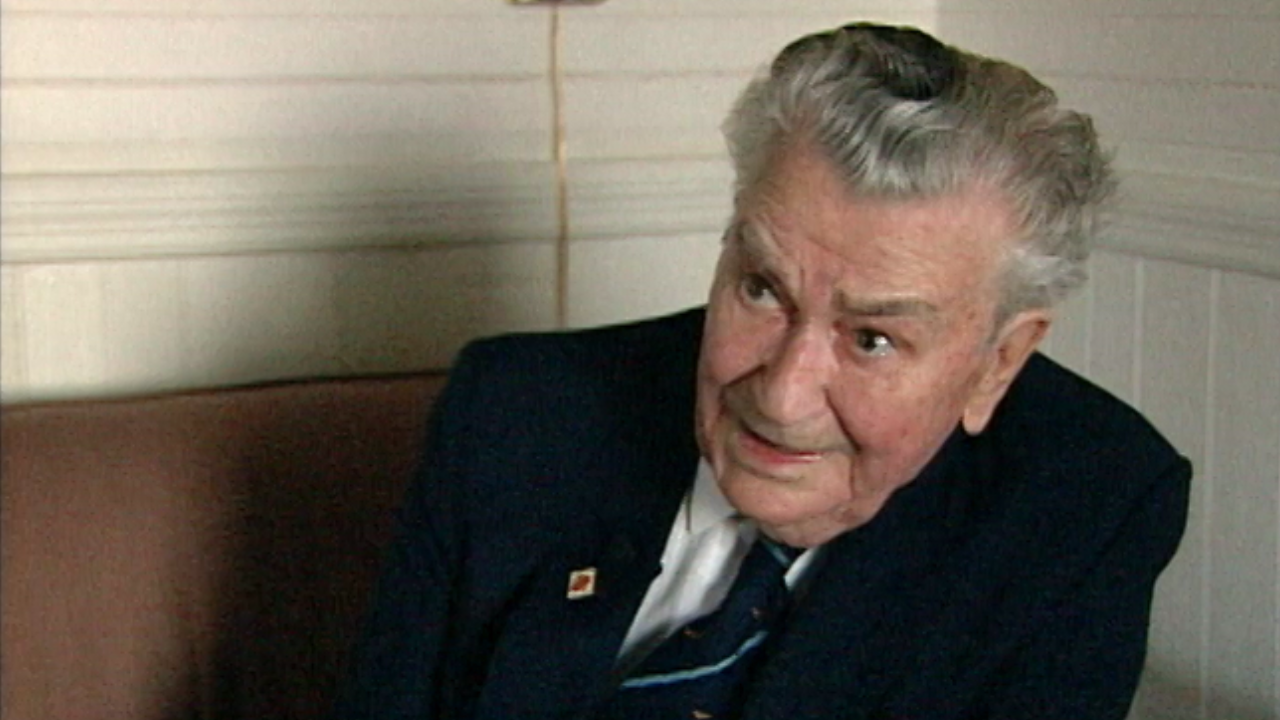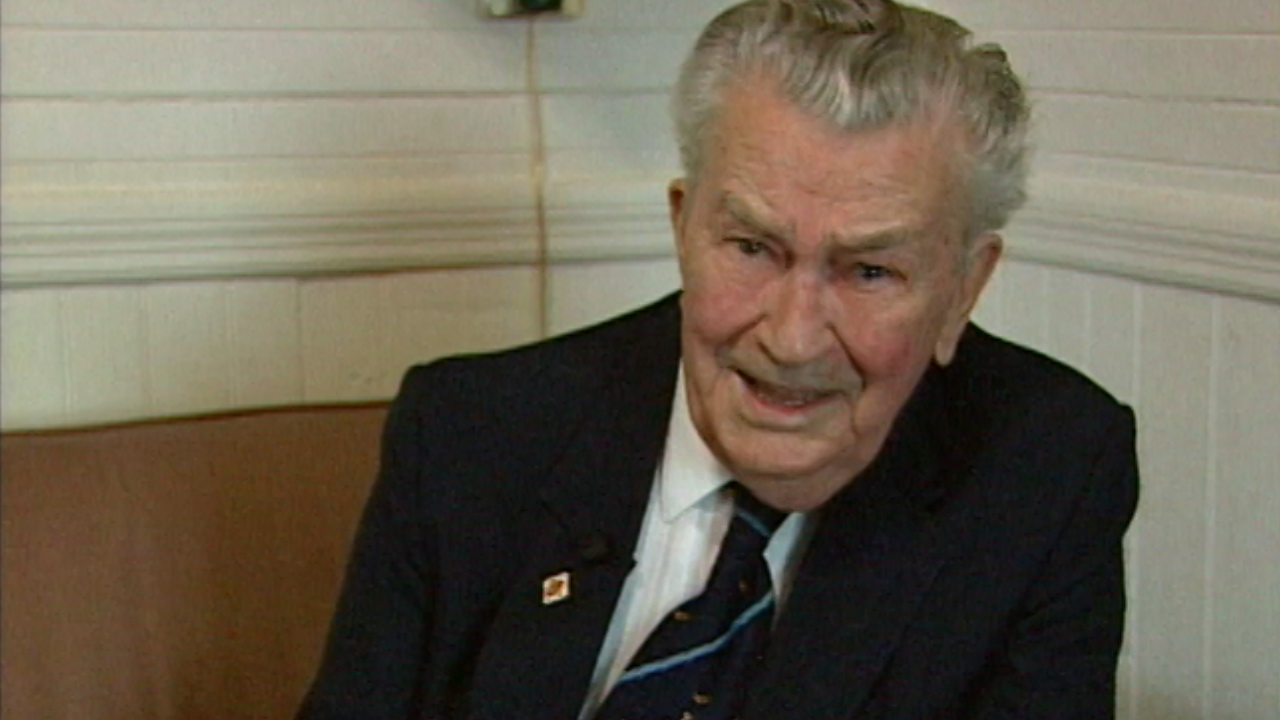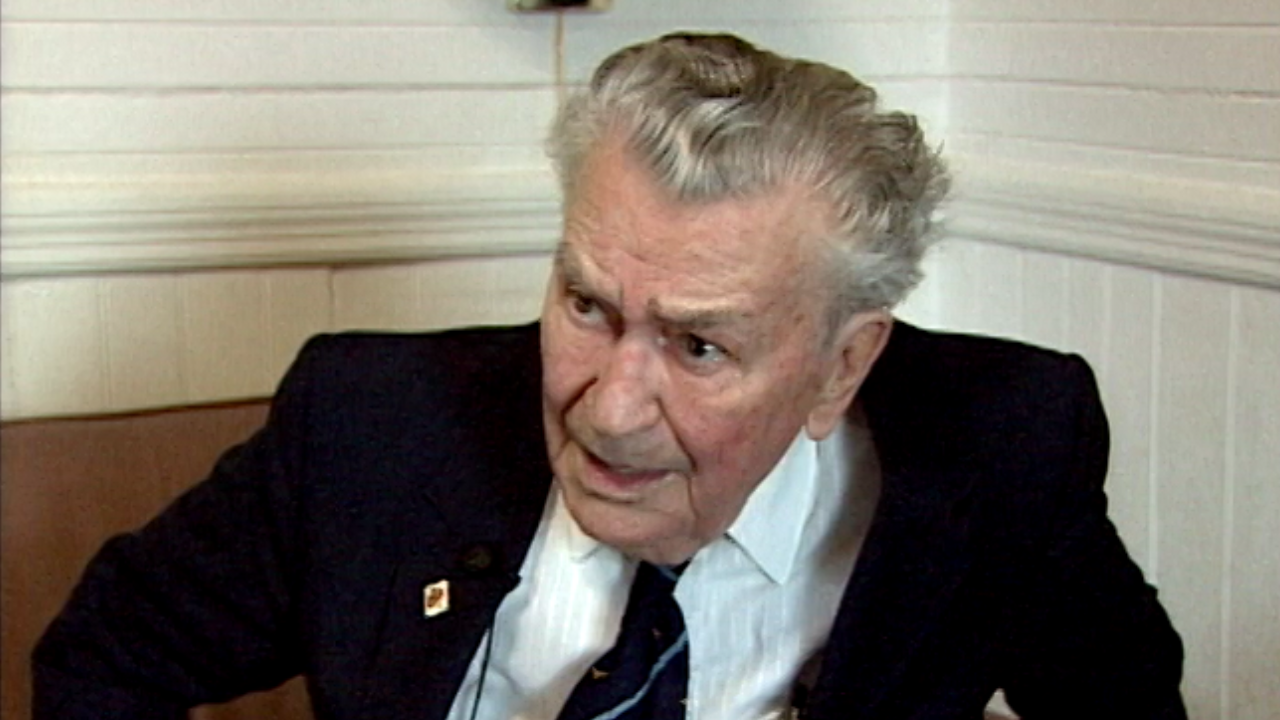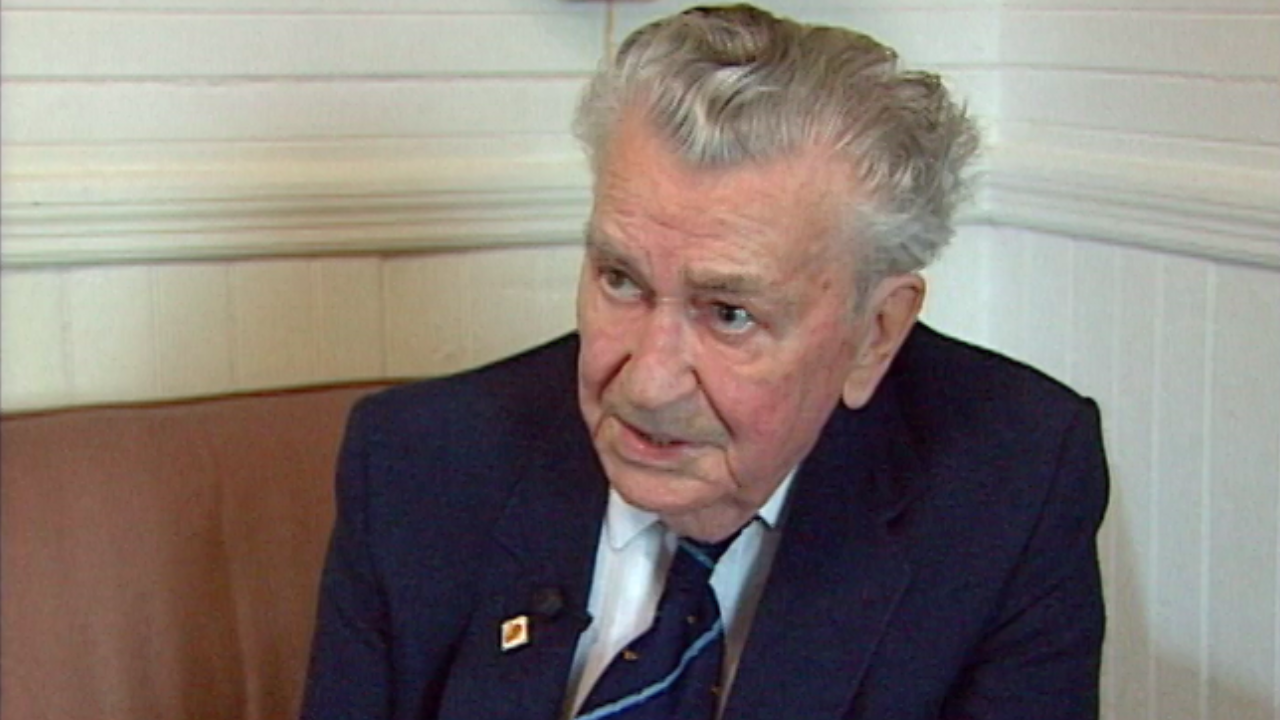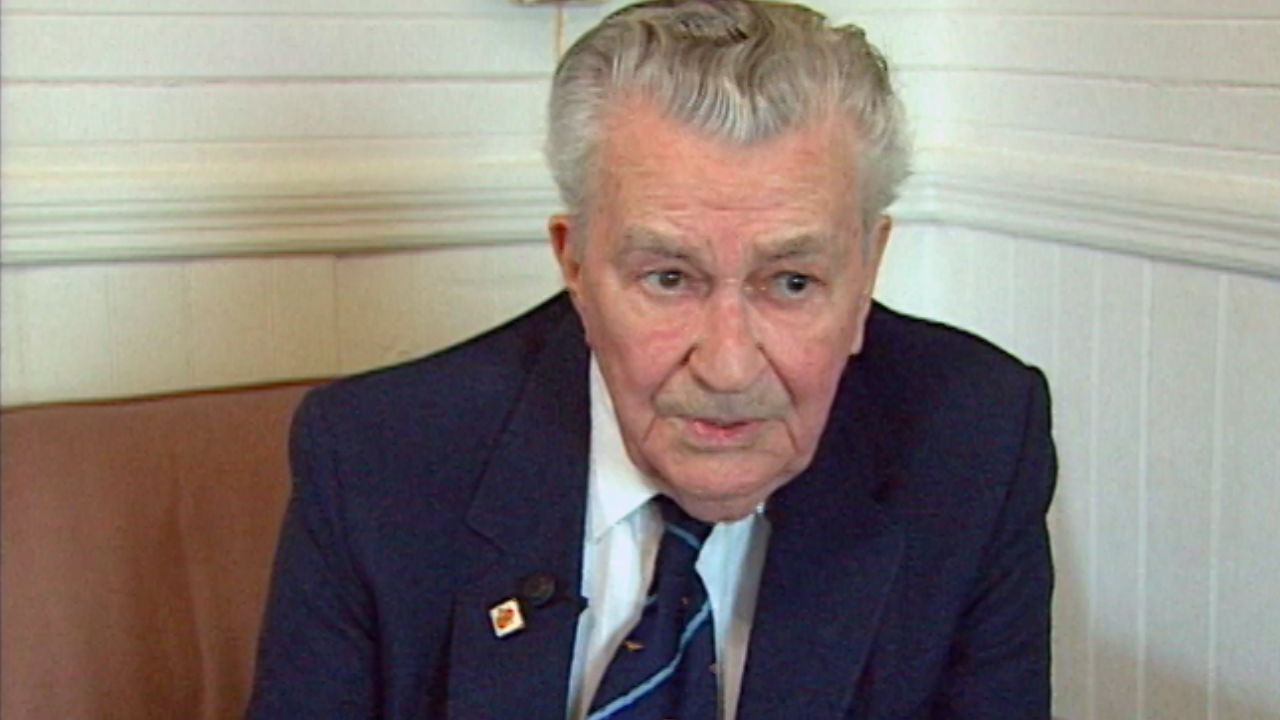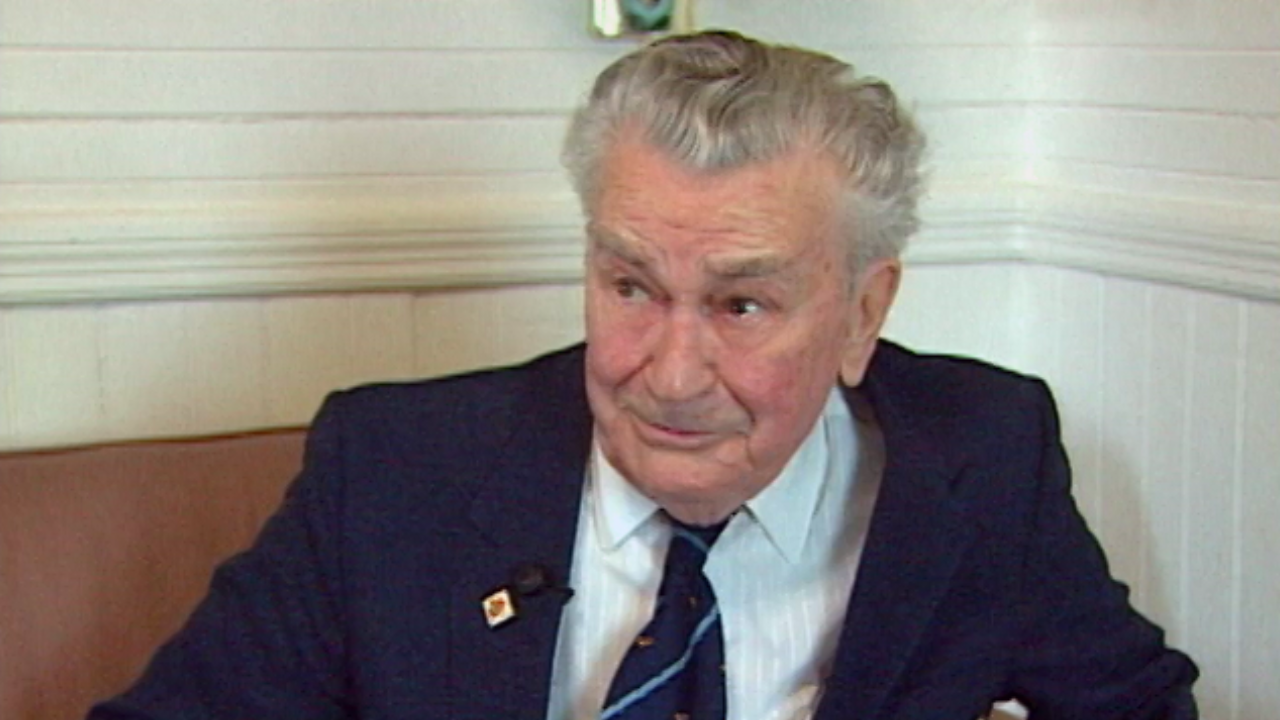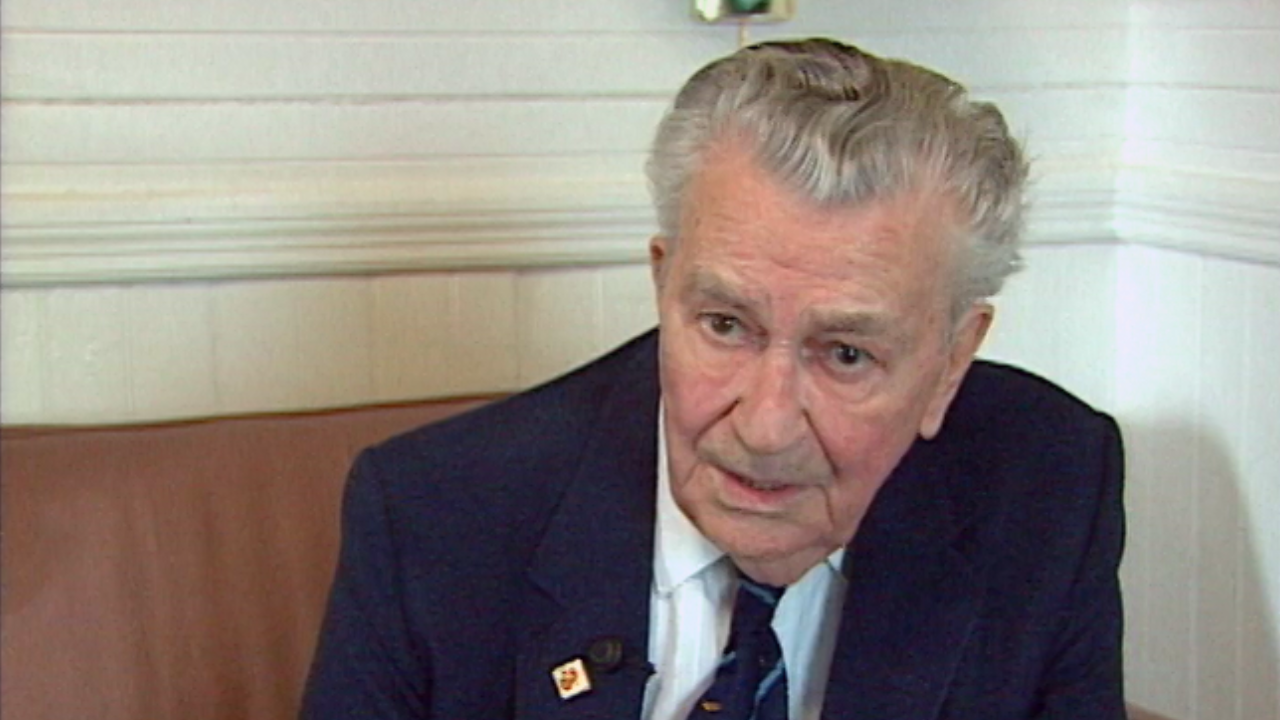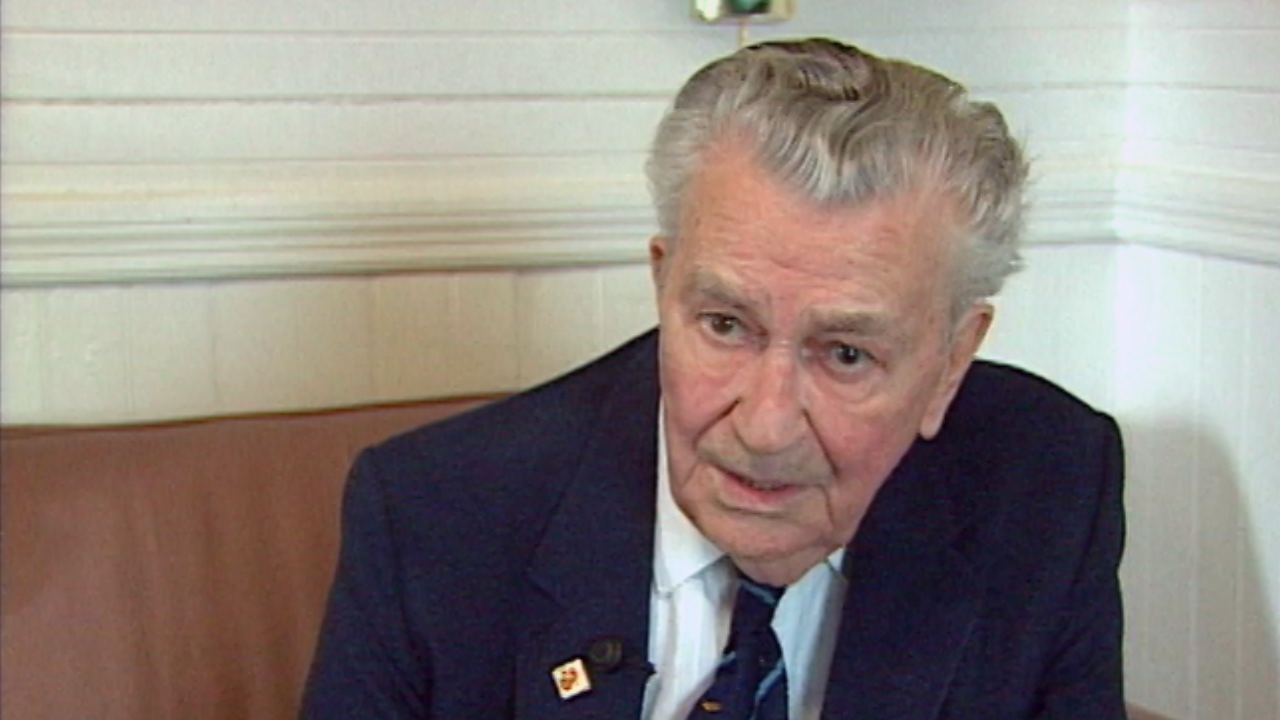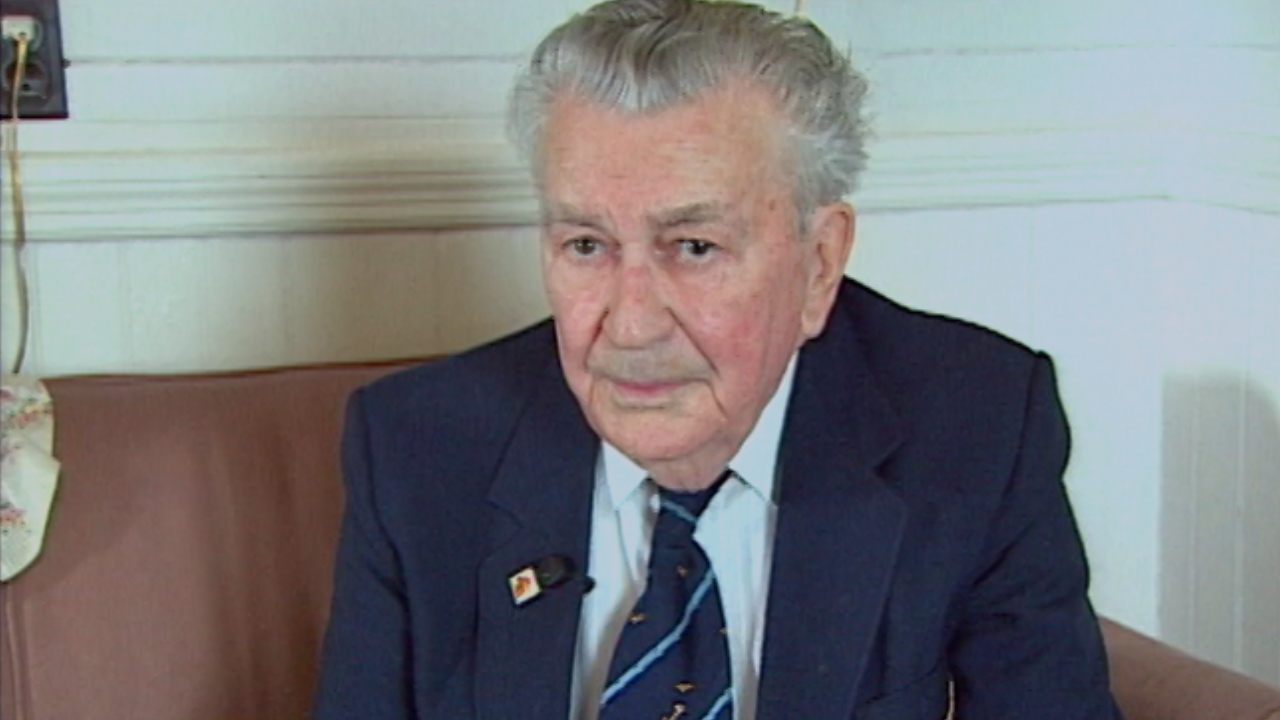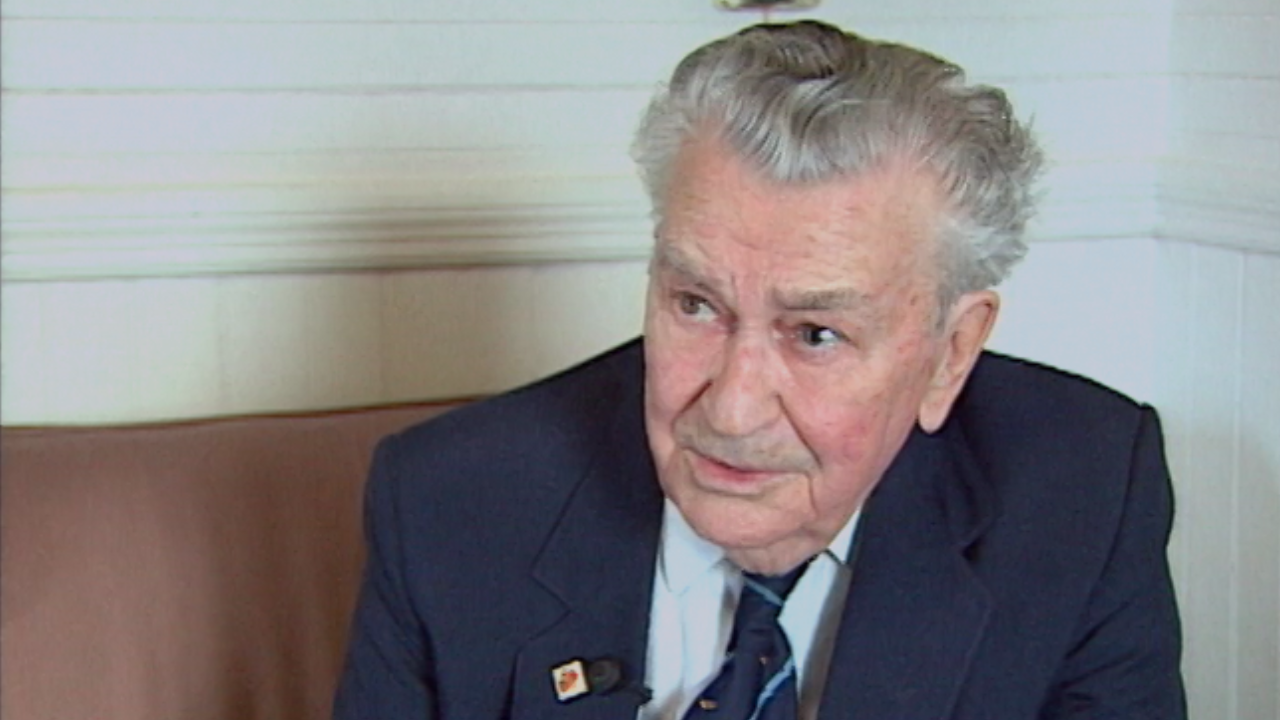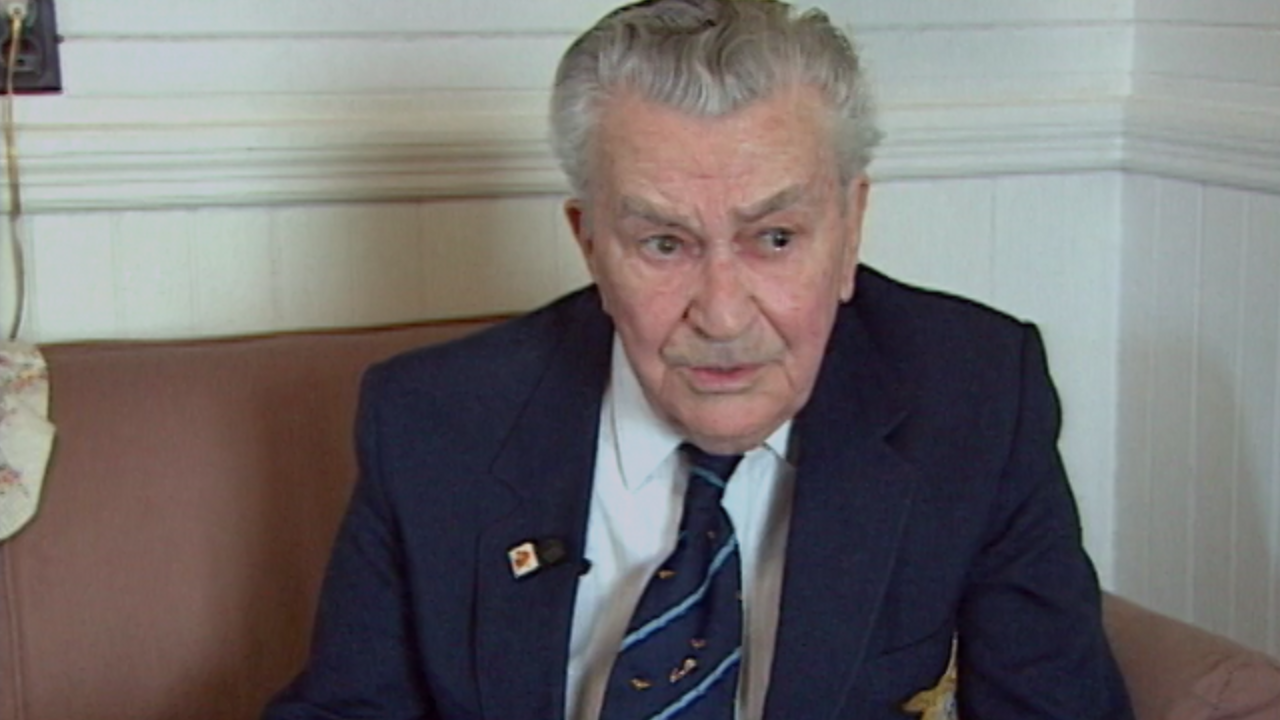Post-War Responsibilities
Heroes Remember
Post-War Responsibilities
Transcript
Description
The war is over. But, Mr. MacLean’s work was not.
John Angus MacLean
Mr. MacLean’s father was a farmer in eastern Prince Edward Island. His grandfather came to Canada from Scotland in 1832. Mr. MacLean had three brothers and four sisters. Two of his brothers died, one at the age of fiveand the other at the age of about one year. For the first two years of his higher education, Mr. MacLean attended Mount Allison University in Sackville, New Brunswick. He went on to the University of British Columbia for his third year of study on a one-year scholarship, majoring in chemistry. In 1938, he returned to Mount Allison University to complete his studies and graduated in 1939. Following graduation, he answered a newspaper advertisement placed by the Royal Air Force for a short-term commission with the RAF. He was chosen as one of two successful Canadian candidates. But, before he could leave for England, the Second World War had started and he was offered a commission in the Royal Canadian Air Force, which he accepted. Mr. MacLean’s bomber was brought down over Germany and he and his crew were forced to bail out. Mr. MacLean landed just inside occupied Holland and was moved along the Comet Line through Holland, Belgium and France to freedom in Spain. He’s an excellent story-teller with emphasis on detail. Mr. MacLean also had an outstanding post-war career as a politician. He served for 10 terms as a Member of Parliament and a term as Premier of his home province of Prince Edward Island.
Meta Data
- Medium:
- Video
- Owner:
- Veterans Affairs Canada
- Duration:
- 02:49
- Person Interviewed:
- John Angus MacLean
- War, Conflict or Mission:
- Second World War
- Location/Theatre:
- France
- Branch:
- Air Force
- Units/Ship:
- Bomber Command
- Rank:
- Captain
- Occupation:
- Pilot
Related Videos
- Date modified:



